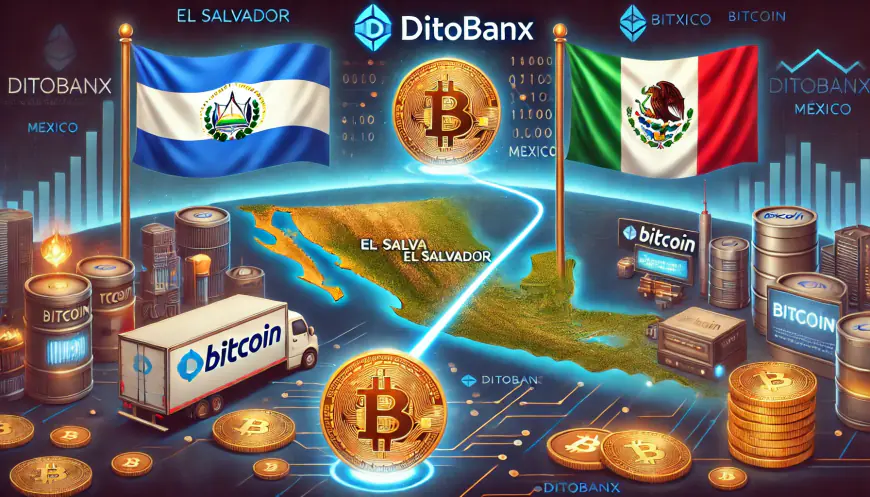From El Salvador to Mexico: DitoBanx Leads the Charge in Crypto Adoption!
Secured digital asset license in El Salvador in 2023, enabling expanded operations across multiple countries including Mexico. Invested $3 million in Mexican expansion, with plans to integrate the digital Mexican peso to boost crypto adoption. Salvadoran FinTech company DitoBanx has announced its expansion into Mexico, aiming to promote the adoption of Bitcoin and enhance financial [...]


- Secured digital asset license in El Salvador in 2023, enabling expanded operations across multiple countries including Mexico.
- Invested $3 million in Mexican expansion, with plans to integrate the digital Mexican peso to boost crypto adoption.
Salvadoran FinTech company DitoBanx has announced its expansion into Mexico, aiming to promote the adoption of Bitcoin and enhance financial services. The company, which secured its digital asset license in El Salvador in April 2023, has quickly extended its operations to Guatemala, the United States, Costa Rica, Panama, and now Mexico in 2024.
In Mexico, DitoBanx plans to offer a variety of services including international money transfers, digital credit cards, dollar accounts, access to cryptocurrencies, and tokenization of physical or crypto.
“With the firm belief that financial well-being is the foundation for the development of a prosperous society, DitoBanx arrives in Mexico with a personalized experience proposal and customer service available 24 hours a day, 365 days a year,” said Guillermo Contreras, CEO and founder of DitoBanx.
As we reported on Crypto News Flash, this expansion aligns with the company’s vision that financial well-being is foundational for societal prosperity. Guillermo Contreras, CEO and founder of DitoBanx, emphasizes their commitment to providing a personalized customer experience and around-the-clock service.
¡Así se vivió el gran lanzamiento de DitoBanx en México!

Una noche llena de emoción, innovación y nuevas oportunidades.
Llegamos para impulsar el futuro de las finanzas.

Gracias a todos los asistentes por ser parte de este momento histórico. ¡Esto apenas comienza!… pic.twitter.com/Gig81DnjJ7
— DitoBanx (@Ditobanx) August 19, 2024
The company’s entry into Mexico is timely, as the use of financial technology apps has seen a substantial increase of 50% over the past four years. DitoBanx aims to cater to both small and large enterprises with services that include DitoWallet and its credit card for daily international transactions.
The tokenization service offered by DitoBanx will allow the fragmentation and sale of assets in the digital realm, providing new opportunities for asset liquidity and accessibility.
In 2023, the Salvadoran government’s Digital Assets Commission (DAC) granted DitoBanx a license that significantly broadens its Bitcoin-related offerings. This license permits the company to buy, sell, and store cryptocurrencies, enhancing its service portfolio.
DitoBanx has invested $3 million in its Mexican expansion, where mobile banking users have skyrocketed from 1.5 million in 2013 to 80 million in 2023. Additionally, Contreras revealed plans to include the digital Mexican peso to further encourage crypto asset adoption.
“We are committed to being a strategic ally in Mexico’s economic and technological growth. DitoBanx is the ideal option for those people and companies looking to go digital and have a financial ally that truly supports them,” said Guillermo Contreras.
By 2025, DitoBanx aims to operate under Mexico’s Popular Financial Company (Sofipo) legal model, continuing its growth and support for economic and technological development in the region, as we reported on Crypto News Flash.
The company has also participated in innovative projects like the Internet Computer (ICP) initiative, trialing Chain-Key Bitcoin (CKBTC) payments at university campuses in Aguascalientes.
This pilot involved 4,000 students who each received 100 pesos in CKBTC to use as a payment method, integrating cryptocurrency into everyday transactions and demonstrating the practical applications of digital assets in retail environments.
What's Your Reaction?










































































































